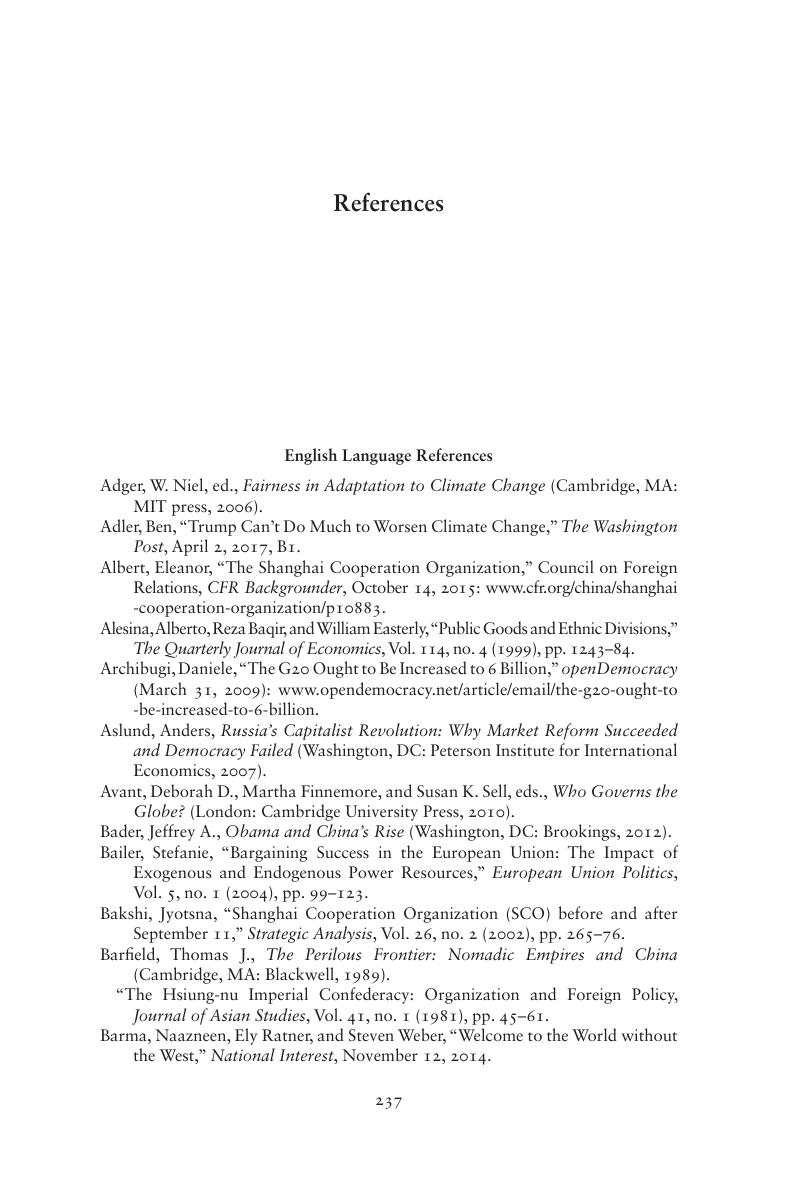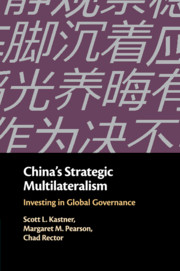Book contents
- China's Strategic Multilateralism
- China's Strategic Multilateralism
- Copyright page
- Contents
- Acknowledgments
- Abbreviations
- 1 Introduction
- 2 Theory
- 3 The Context and Content of China's Rise
- 4 Order in Central Asia
- 5 Nuclear Nonproliferation
- 6 Global Financial Governance
- 7 Climate Change Negotiations
- 8 Conclusions
- References
- Index
- References
References
Published online by Cambridge University Press: 19 October 2018
- China's Strategic Multilateralism
- China's Strategic Multilateralism
- Copyright page
- Contents
- Acknowledgments
- Abbreviations
- 1 Introduction
- 2 Theory
- 3 The Context and Content of China's Rise
- 4 Order in Central Asia
- 5 Nuclear Nonproliferation
- 6 Global Financial Governance
- 7 Climate Change Negotiations
- 8 Conclusions
- References
- Index
- References
Summary

- Type
- Chapter
- Information
- China's Strategic MultilateralismInvesting in Global Governance, pp. 237 - 260Publisher: Cambridge University PressPrint publication year: 2018

